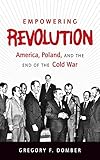Support H-Net | Buy Books Here | Help Support the NBN and NBN en Español on Patreon | Visit New Books Network en Español!
- African Studies
- African American Studies
- American Politics
- American Studies
- American South
- American West
- Asian American Studies
- Australian and New Zealand Studies
- British Studies
- Canadian Studies
- Caribbean Studies
- Central Asian Studies
- Chinese Studies
- East Asian Studies
- Eastern European Studies
- European Politics
- French Studies
- German Studies
- Iberian Studies
- India Studies
- Indian Ocean World
- Iranian Studies
- Irish Studies
- Israel Studies
- Italian Studies
- Japanese Studies
- Korean Studies
- Latino Studies
- Latin American Studies
- Mexican Studies
- Middle Eastern Studies
- Native American Studies
- Pacific Studies
- Polish Studies
- Russian and Eurasian Studies
- Southeast Asian Studies
- South Asian Studies
- Turkish Studies
- Ukrainian Studies
- Western European Studies
- World Affairs
- Animal Studies
- Anthropology
- Archaeology
- Business, Management, and Marketing
- Media
- Critical Theory
- Disability Studies
- Drugs, Addiction and Recovery
- Education
- Economics
- Finance
- Geography
- Gender Studies
- Genocide Studies
- Higher Education
- Human Rights
- Journalism
- Language
- Law
- LGBTQ+ Studies
- National Security
- Philanthropy
- Philosophy
- Policing, Incarceration, and Reform
- Political Science
- Politics & Polemics
- Public Policy
- Sex, Sexuality, and Sex Work
- Sociology
- Sound Studies
- Sports
- Urban Studies
- Big Ideas
- Celebration Studies
- Co-Authored
- Cover Story
- Historical Materialism
- History Ex Silo
- Interpretive Political and Social Science
- Invested Investor
- Landscape Architecture
- Late Antiquity
- Mormonism
- NBN Book of the Day
- NBN Seminar
- Postscript: Conversations on Politics and Political Science
- Practical History
- Preparing for Life After Grad School
- Psychology and Climate Change
- Syriac Studies
- The Chair: In The Room at the Fed
- New Books with Miranda Melcher

Nov 3, 2014
The Limits of Partnership
U.S.-Russian Relations in the Twentieth-First Century
Summary
In 2005, the Comedy Central Network aired an episode of "South Park" in which one of the characters asked if any "Third World" countries other than Russia had the ability to fly a whale to the moon. During a press conference that took place two years later, Russian President Vladimir Putin lamented that he was the only "pure democrat" left in the world. The United States did not deserve such a title, he explained, in light of its "homeless citizens, detentions without normal court proceedings, and horrible torture." The willingness of a U.S. cartoon to mock Russia's pretensions to "great power" status and Putin's defense of his government's democratic credentials raise important questions about the general trajectory of U.S.-Russian relations since the end of the Cold War and collapse of the Soviet Union.
Angela Stent addresses this important topic in her new book The Limits of Partnership: U.S.-Russian Relations in the Twentieth First-Century (Princeton University Press, 2014). Drawing on her experience as professor of history at Georgetown University and work in the U.S. State Department, she explores the question of why U.S.-Russian relations have often become strained despite having some successes cooperating on issues such as arms control. Do geographical, historical, ideological, and cultural differences make such discord inevitable? Just how much do "personal relations" and "domestic issues" shape this relationship? What steps, if any, can Americans take in the coming years to forge a more productive relationship with the Russian Federation? Whatever one thinks of Stent's arguments and recommendations, she has succeeded in writing a thought provoking work that will help general readers and specialists better understand the vicissitudes of recent U.S.-Russian relations. Whether they like it or not, U.S. and Russian policymakers will have to continue dealing with each when addressing problems as diverse as the future of Ukraine, Iran's nuclear ambitions, and "global terrorism." Over the long term, the question becomes: Can the leaders of these two nations put the past behind them and work together to create a more humane and peaceful world? Or, as Stent argues, will this relationship remain a "limited partnership" where U.S. and Russian policymakers continue to clash on most issues and only cooperate when their governments' interests happen to coincide?




































































































